Black psychologist warns about the mental health dangers on Clubhouse
OPINION: Dr. Jinaki Flint says the new popular social media app creates a 'false sense of intimacy' for users who feel safe to share their personal traumas
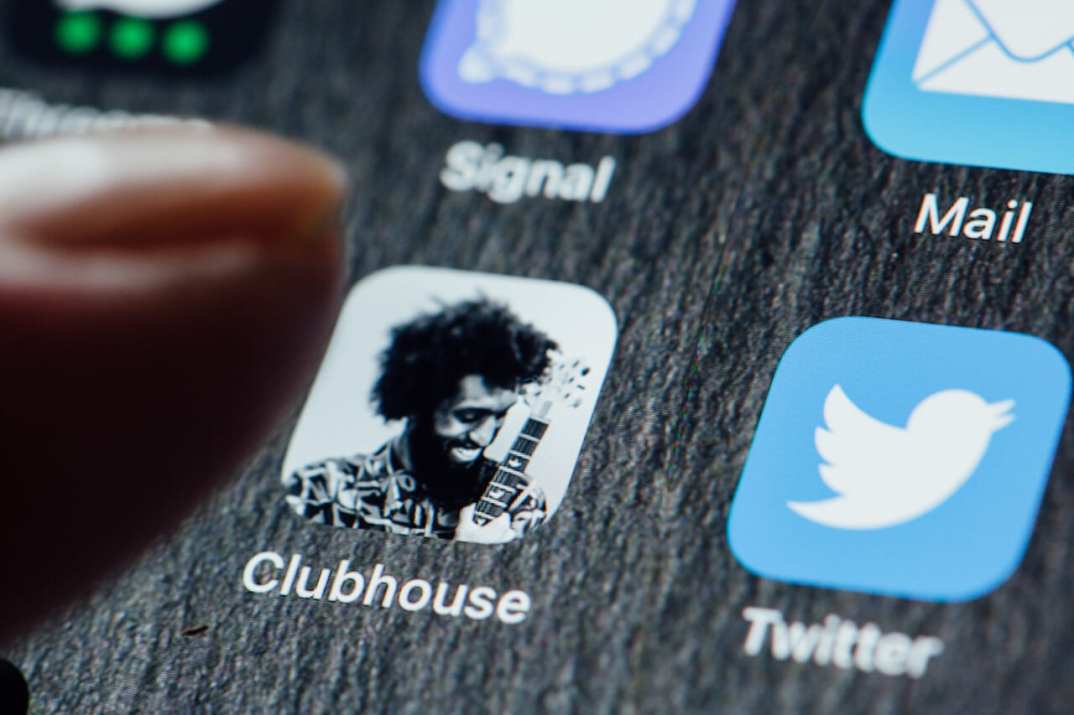
A friend recently invited me to join Clubhouse, a novel social media application that is rapidly gaining in popularity. Clubhouse features numerous conversations on varied topics in rooms that are run by moderators. It seems almost like a kind of roundup of group podcasts in a social media seminar-type setup.
According to the app’s developers, there are thousands of rooms that a user can enter to join the conversation or simply listen as it unfolds. There is even a “hallway” with a listing of scheduled rooms allowing the user to plan their time around preferred topics.
Read More: Black creatives bring ‘The Lion King’ musical to Clubhouse, thousands tune in
The application, at first sight, appears to be a “build-your-own-podcast” structure of rooms featuring a range of topics that can be opened by the app’s invitees. Visitors to a Clubhouse room are placed in the audience section labeled “others in the room” or “followed by the speakers.” Here is where you can listen to the moderators and those who are called to the stage to speak. To talk, you raise your hand to alert the moderators.
Clubhouse room sizes range from small and intimate to very crowded. The largest I’ve witnessed was over 1700 people.
I joined Clubhouse where I checked out rooms about genetics, physics, COVID-19 updates, spirituality, and religion. These rooms were deeply educational and insightful and have featured thought leaders with whom I never expected to have so much in common.
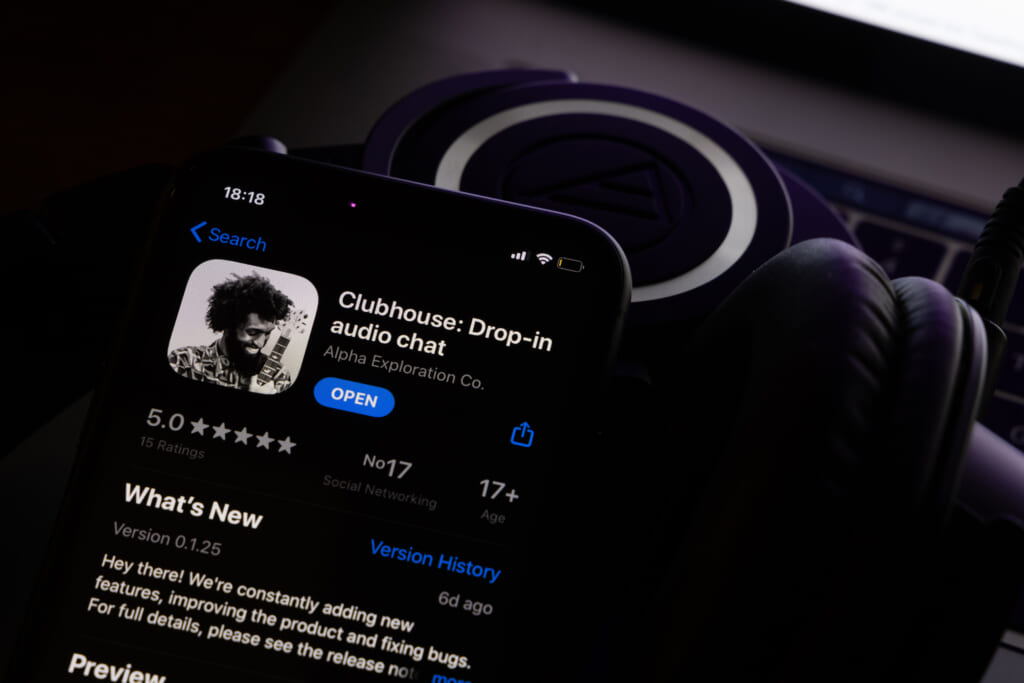
As a licensed psychologist, I immediately began searching keywords related to mental health and psychology in rooms where I could converse with fellow Black professionals and thought leaders in psychology. I was alarmed that many of these rooms were moderated by people who are not mental health professionals.
What I found was a mix of disturbing and dangerous practices led by Africans and Black Americans that were promoted with mental health language absent the underlying expertise and principles needed to make the conversations truly insightful.
In some of these rooms, audience members shared experiences of complex childhood physical and sexual traumas, or of witnessing the trauma experienced by a family member or friend. The stories ranged from physical and sexual abuse to attempted suicides of family members.
Read More: Some 911 calls to be handled by mental health professionals in new NY pilot program
At first, I tried to express my concerns and interject to issue warnings about the emotional and psychological dangers of information sharing in these spaces. I even offered information about resources that could be helpful. This warning was met with an awkward silence in one room and fully supported by one moderator who immediately identified me as a psychologist, to let the audience know that I was qualified to provide such information. This quickly started to feel overwhelming – I can’t be in every room, nor do I wish to be.
I chose to enter rooms led by licensed mental health professionals, which I confirmed by checking their bios, and researching their social media and LinkedIn pages. This also proved problematic because many of the licensed professionals hosted rooms labeled “Talk about Trauma” where they invited both lay and professional people to enter the room and tell their stories.
How is it that we are asking people that we cannot access personally to come on social media and expose their deepest wounds in a room of strangers? In what world is this safe or ethical? Licensed mental health professionals have concise ethical guidelines led by a golden principle, to do no harm.
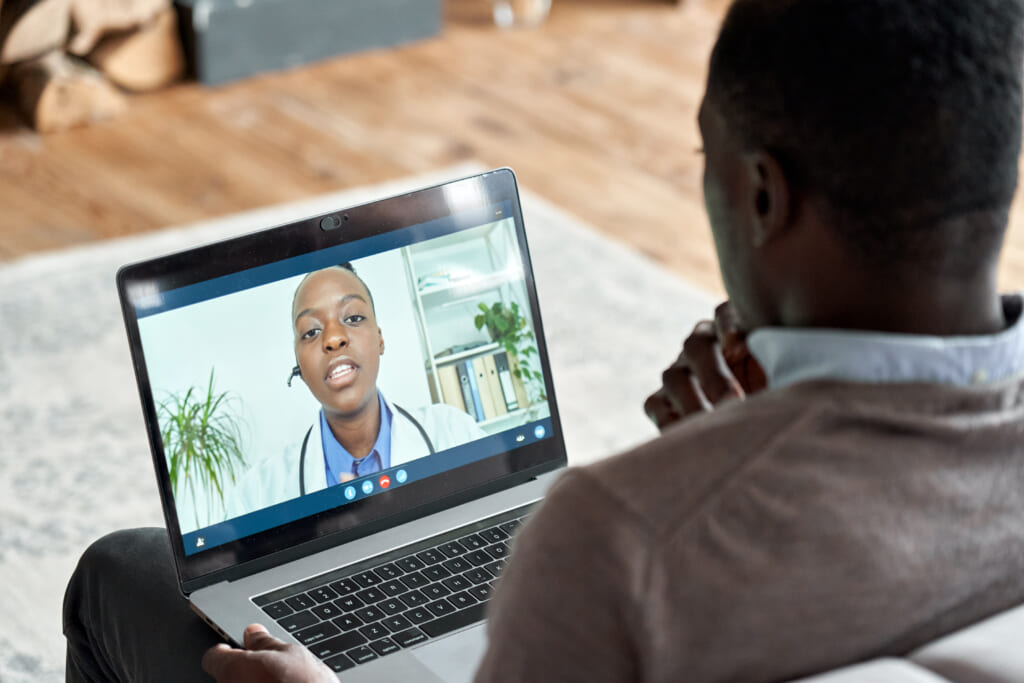
I get it. I understand the appeal of connecting and sharing on Clubhouse. Its rapid popularity during the pandemic is timely and feels welcoming in a time when social distancing and masks can feel lonely and isolating. We humans are hardwired to need connection, belonging, and affirmation.
And Black people, who are generally communal yet often targeted by racist violence in society, may be especially vulnerable to nervous system disruptions, depression and anxiety during this pandemic.
Black folks do not frequently have spaces where they can openly process issues and often do not trust “airing out dirty laundry” especially to strangers. Yet, many are quite open with their deepest secrets on Clubhouse. Why? This platform provides an opportunity where people’s voices can be heard in real-time without being identified, which creates a false sense of intimacy, and might be perceived as a safer space for self-expression.
Read More: Black therapists on how to cope with racial trauma amid COVID-19 pandemic
It is like a shiny whistle under a guillotine. Once you stick your hand inside to get the shiny whistle, the guillotine that you did not see comes down and chops off your hand. Sharing the trauma story may feel good at first, but with no appropriate place to process this narrative in the body when logging off of Clubhouse, one is left emotionally raw and at risk for further trauma.
Unlike other social media apps, Clubhouse is built around the power of the voice, much like podcasts. The use of voice is formidable. Studies indicate that humans are much more sensitive to voice, with the ability to identify over 1700 vocal tones compared to only 150 visual hues. Further, the idea of “having a voice” can seem to give people a sense of power and agency. However, this sense of power may be as harmful as it is empowering.
In private discussions with other mental health professionals who are also on Clubhouse, I have heard several reports of people having difficulties managing emotional responses and vomiting long held wounds caused by decades of abuse. There was one disturbing report of a room with nearly 200 people expressing suicidal thoughts and their right to complete suicide.
The field of mental health can be confusing, and non-professionals often don’t understand what to expect from therapy, or know the difference between the mental health professions such as psychiatry, psychology, professional counseling, and social work — all fields for which a license is required.
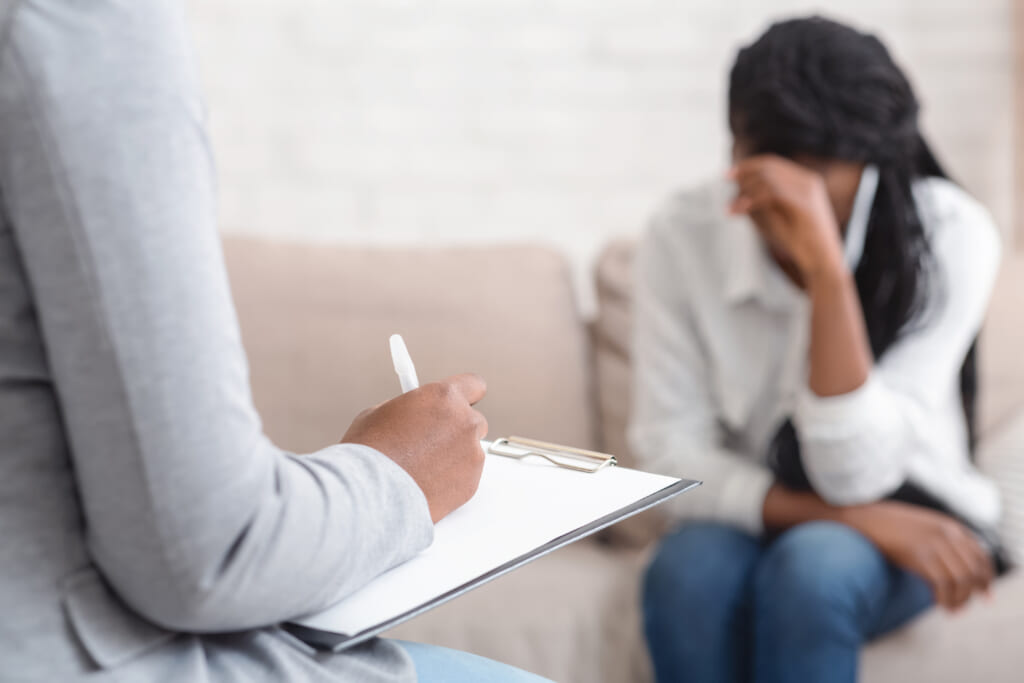
There are also a host of “life coaches” and others with “mental health advocate” in their Clubhouse biography. Too often I have witnessed or heard about licensed professionals and unlicensed others attempting therapeutic interventions in Clubhouse rooms. This is not only unethical but also potentially very harmful to people who might be seeking or benefit from professional guidance but are unaware of the limitations of social media to provide therapeutic interventions or treatment.
There is currently a coalition of licensed mental health professionals appealing to the Clubhouse developers about these concerns in hopes of setting guidelines for users seeking to host rooms about mental health. Soon after the coalition’s initial town hall meeting on Clubhouse, several mental health providers have updated their bios with disclaimers and room titles are stating “Not Therapy…” Further, clinicians are continuing the disclaimer as moderators of rooms they are hosting.
As we enter 2021 — all of us battered and bruised by 2020 — Black people continue to struggle with serious systemic issues such as lack of access to health care, dying at disproportionately higher rates, racial violence, unemployment, evictions, poverty, and a deadly pandemic. And increased suicides are a huge issue.
Such an overwhelming sense of helplessness and feelings of danger can cause our bodies to feel stuck in the “on” position, in need of space to expend that stuck energy. The appeal and potential power of Clubhouse is obvious in this context. Sadly, so is the potential harm caused when non-professionals are leading discussions with vulnerable people.
As a child, I watched the elder mothers shout, run, and dance themselves into a frenzy at church. My grandmother said that they were trying to get the devil out of them. I believe they were trying to reconnect with their bodies, remember themselves — conjure something— anything that made them feel alive in a body that stopped supporting them.
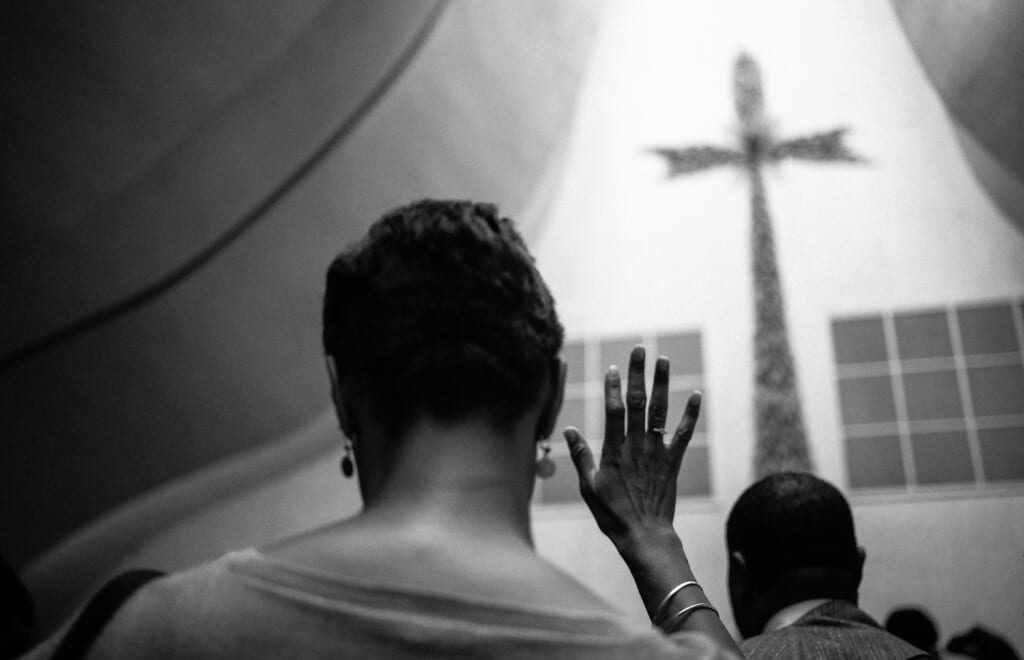
After several days of observing Clubhouse rooms centered around mental health, I see the same dynamic: Black folks striving to remember themselves through the power of the spoken word, healing through the ancestral spiritual genetics of voice and community.
There need to be ample warnings and disclaimers that Clubhouse is not the space for this kind of work to take place, with ample referrals to trusted sources. They need to make clear that most of what they discuss is to foster networking and a sense of community. It is also important to note that Clubhouse, like all social media apps, is neither created nor run by Black people. And Black well-being is never on the agenda.
Social media is not a tangible community. It is a simulation of community and while it has its benefits, it can also cause serious harm if it is misrepresented, misunderstood, or misused as a tool for actual healing in real-time.
What Clubhouse and other social media can do is reduce the stigma not only of mental health conditions but of the long-held attitude in Black communities that seeking professional help is a sign of “weakness,” and/or something that only white people do. And social media has the power to direct people in need to credible, reliable sources for the kind of professional help and guidance that can make a real difference.
This is not an indictment of Clubhouse or any social media. It is simply a warning to those who might be led to believe that those spaces can provide the tangible guidance, assistance, and healing that is so very necessary, especially for Black people. It is a call to raise everyone’s awareness about the need for professional assistance in assessing and treating mental health.
Just as we wouldn’t attempt to perform our own dental work or medical procedures based on social media guidance, neither should we downplay the need for competent professionals to work with us in addressing mental health issues.
For 2021 to truly be about healing, we can all use our social media voices and influence to raise awareness and provide the kind of guidance that can lead to the true healing and progress that we deserve.
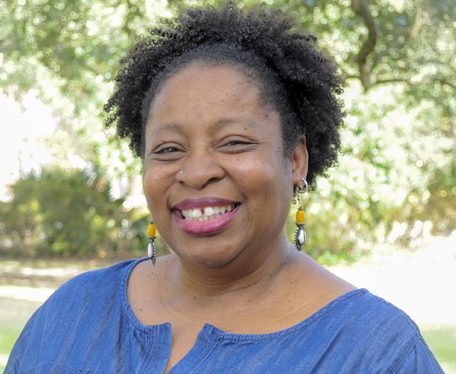
Dr. Jinaki Flint is a licensed clinical psychologist in New Orleans. She is in private practice at 21Senses NOLA, LLC. Follow her on Instagram @21senseshealing or email her.
Have you subscribed to theGrio’s podcast “Dear Culture”? Download our newest episodes now!
TheGrio is now on Apple TV, Amazon Fire, and Roku. Download theGrio today!
